Young people under 40 are expected to face an epidemic of colon cancer by 2030 and it looks like the numbers will be doubled.
Colon cancer, which is very hard to treat due to late diagnosis and broad symptoms, is also expected to become the number one cause of cancer deaths in people under 50 by the end of the decade.
Doctors are still trying to determine what’s behind the unprecedented rise, but theories include modern diets, antibiotic use, and fungus.

Dr. Christopher Lieu, co-director of gastrointestinal medical oncology at the University of Colorado Medicine, said, “Colorectal cancer will be the number one cause of cancer-related deaths in patients 20 to 49.”
Dr. Lieu added while speaking at a Chicago conference, “This is a humongous issue that the younger society will face.”
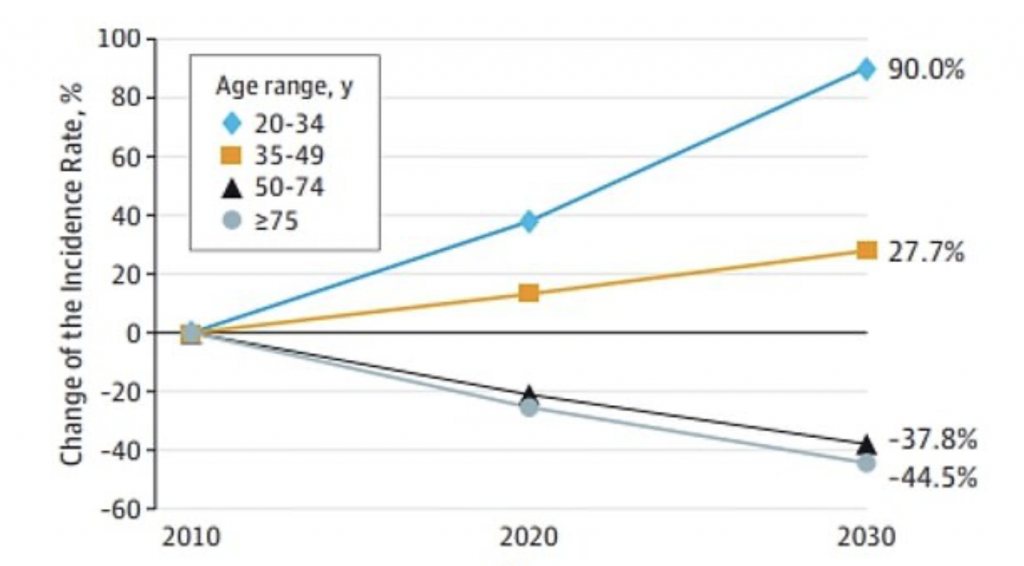
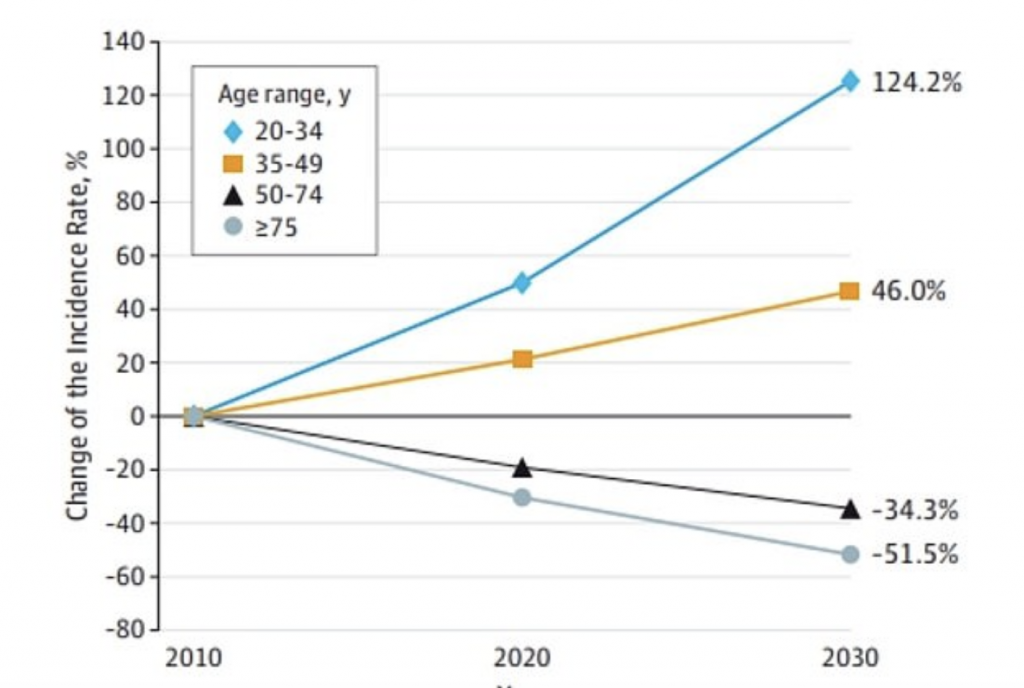
Cancers of the colon and rectum are currently the third most common type in the US and the third leading cause of death of both men and women.
Dr. Lieu said that in young people, both diagnoses and death rates are climbing, even though rates in older populations are declining.
The American Cancer Society estimates about 153,000 colorectal cancer cases will be detected this year, including 19,500 among those under 50 years old.
Some 52,550 people are expected to die from the disease.
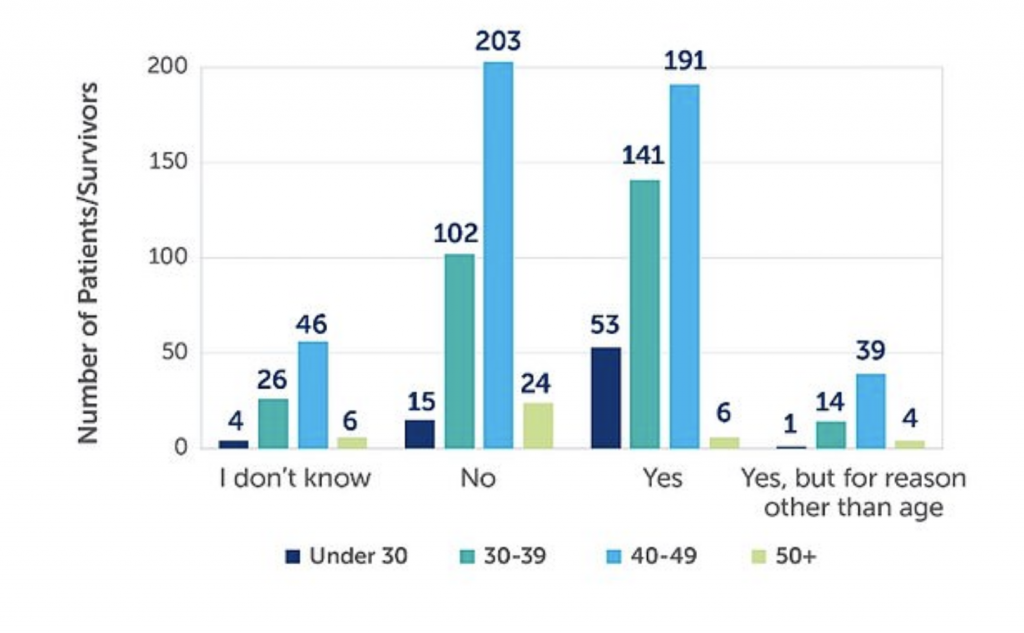
The US is not the only country seeing these alarming rates. A 2023 review found that while the US had an early-onset colorectal cancer rate of 12.4 per 100,000 people, Australia had 13.5, Norway had 10.5, Korea had 10.1, and the United Kingdom had 9.3.
“We don’t know why this trend is being seen in numerous countries that have different diets and exposures and environmental factors,” Dr. Lieu said. “However, based on data from JAMA Surgery, between 2010 and 2030, colon cancer will have increased by 90 percent in people ages 20 to 34. Rectal cancer will have spiked by 124 percent in the same age group.”
Many doctors blame unhealthy diets, alcohol, and sedentary lifestyles for the shift in numbers.
A study published in April examined how being born via c-section influenced the chance of developing early-onset colorectal cancer. The researchers found that females born via c-section were more likely to develop colorectal cancer earlier in life than those born vaginally. There was no association among males.
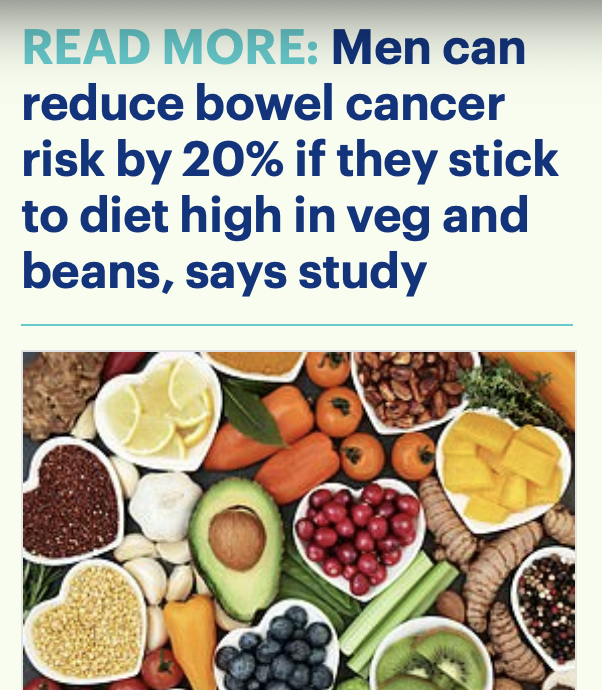
Additionally, antibiotic use has been shown to impact this risk. One study in the journal Gut found that prolonged antibiotic use increased risk of early-onset colon cancer. However, it was also associated with a lower risk of rectal cancer.
Research presented at the American Society of Clinical Oncology’s annual meeting this weekend showed that the fungus Cladosporium sp. was more common in the tumors of young patients than the older individuals.
It’s still unclear how Cladosporium sp. could lead to this increase in cases, but the researchers think it could damage cell DNA. This could make them turn into cancerous cells.
Part of what makes colorectal cancer difficult to diagnose is its symptoms, which can often be attributed to other conditions. However, some stand out more than others.
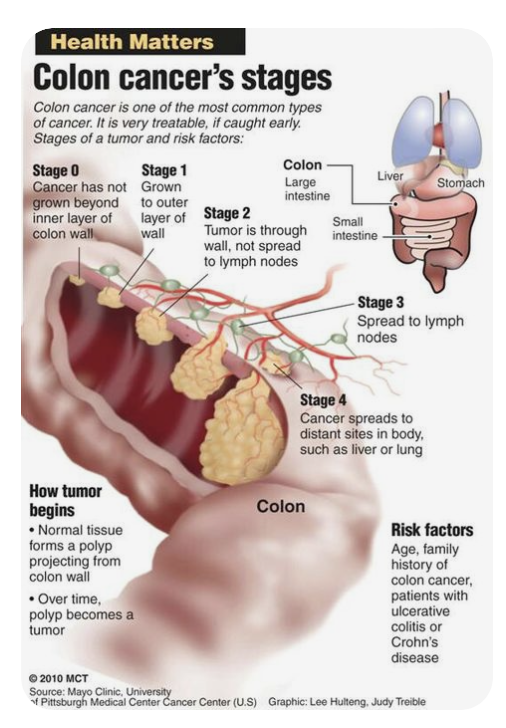
A study published last month in the Journal of the National Cancer Institute found that the most reported symptoms were abdominal pain, blood in the stool, diarrhea, and iron-deficiency anemia.
Additionally, in a 2020 survey by Colorectal Cancer Alliance, 68 percent of participants said they experienced blood in their stool. The average participant age was 42.
Dr. Lieu said in a call to action that educating physicians and patients on what signs to look out for and expanding risk assessments and genetic testing could help researchers better understand what is causing this increase.
“Awareness is key,” he said.















